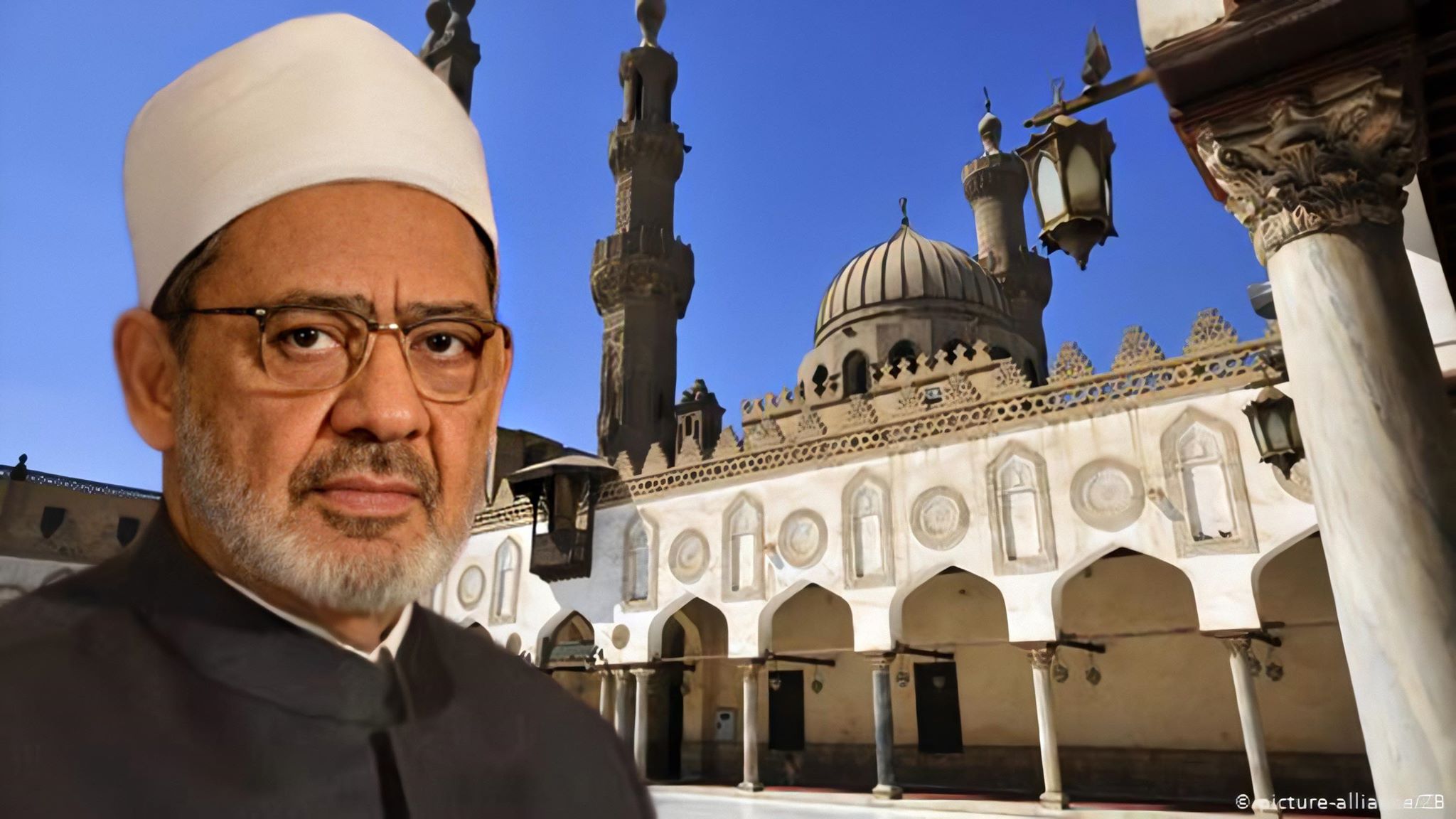A new episode in the conflict between Al-Azhar and the ruling regime in Egypt has erupted through the law regulating the Egyptian House of Fatwa, which was initially approved by the House of Representatives despite al-Azhar’s strong objection to it.
Al-Azhar and the Council of Senior Scholars considered the amendments to the law to be contrary to the constitution, and against the independence of al-Azhar with the aim of creating an entity parallel to al-Azhar which is harmful to the Fatwa and Daawa. This is not the first time al-Azhar and its Sheikh Ahmed al-Tayeb have entered into conflict and controversy with the Egyptian regime and other state institutions, as they did over the case of the unified Friday sermon, and the controversy between al-Tayeb and President Abdel Fattah al-Sisi regarding the issue of renewing religious discourse and purifying Islamic heritage.
The Sheikh of al-Azhar did not escape without an attack by the media loyal to the regime, who considered him an obstacle to religious renewal and a supporter of extremism and terrorism.
Dar al-Iftaa Organisation Law
The latest episode in the conflict is the law regulating the Dar al-Iftaa, as the House of Representatives agreed to amend the law to provide for its affiliation with the cabinet instead of the Ministry of Justice, and to consider it an independent religious entity, which was rejected by some representatives and the representative of al-Azhar. Muhammad al-Dowaini, Secretary-General of the Senior Scholars Authority, representative of al-Azhar al-Sharif, explained during the plenary session of parliament that the draft law regulating Dar al-Iftaa is an attack on al-Azhar’s powers.
Before that, al-Azhar al-Sharif sent a letter to the Speaker of the House of Representatives, which included the opinion of the al-Azhar Senior Scholars Committee on the draft law, stressing that the articles of this project violated the Egyptian constitution, and explained how it affected the independence of al-Azhar and its affiliated bodies, led by the Council of Senior Scholars, al-Azhar University and the Islamic Research Academy. He added that the proposed bill included aggression on the competence and independence of the Council of Senior Scholars in al-Azhar, which alone is concerned with the nomination of the Grand Mufti of the Republic.
He pointed out that the bill came up with articles to keep the mufti in office until he reached the legal age for retirement, without consideration for the period specified in the list of senior scholars, which the current mufti was appointed according to. The new bill also allows his renewal after he reaches this age, without specifying a period for that, and without presentation in the form of senior scholars.
A fierce struggle
The law regulating Dar al-Iftaa was preceded by attempts by the regime to amend the Al-Azhar law through Muhammad Abu Hamed, one of the deputies affiliated with the system, in order to lift the immunity from the position of Sheikh al-Azhar, so that al-Sisi could remove him or appoint an alternative, but the parliament postponed discussing the proposal after objections from al-Azhar. The features of the conflict became clear after al-Azhar sent to the Supreme Media Council a list of the names of those entitled to appear in the media to speak about the call and the fatwa, and the list of al-Azhar came without the name of Osama al-Azhari, al-Sisi’s advisor for religious affairs.
The Ministry of Endowments (whose minister sided with the regime) responded to al-Azhar’s list with another list of its own that included the name of Osama al-Azhari and others excluded from al-Azhar’s list.
Al-Azhar and al-Awqaf
Another dispute rose between al-Azhar and the al-Awqaf Ministry in July 2016, due to the decision of the al-Awqaf to unify the Friday sermon, as the ministry announced that the imams of the mosques would deliver a written unified sermon on Friday.
Al-Azhar announced its opinion at the meeting of the Council of Senior Scholars, rejecting the decision to have a written sermon.
The Minister of al-Awqaf challenged the Council of Senior Scholars saying that its opinion in the written sermon is not binding on the Ministry, although, the ministry retreated later after al-Sisi intervened, to resolve the controversy, and to end the dispute between al-Azhar and al-Awqaf, by rejecting the idea of the written sermon.
Al-Tayeb and al-Sisi
It is evident that the law to regulate Dar al-Iftaa is a new attempt by al-Sisi to withdraw the rug from underneath al-Azhar and reduce the powers of Ahmed al-Tayyib, who has engaged in clashes on multiple fronts, especially in issues of renewing religious discourse and purifying Islamic heritage.
During the celebration of the Prophet’s birthday last year, the Sheikh of al-Azhar attacked “voices that have always questioned the value of the prophetic Sunnah, its authenticity, its authority, and its challenges,” and attacked calls to “demand the exclusion of the Sunnah from the circle of legislation and provisions and reliance on the Holy Qur’an only.”
The word of Sheikh al-Azhar did not go unnoticed, but al-Sisi commented on it in the same conference by saying: “Whoever offended Islam the most: the call to leave the Sunnah and only the Qur’an, or the wrong understanding and extremism? What is the reputation of Muslims in the world now?” Then the Sheikh of al-Azhar entered into a debate with Othman el-Khasht, President of Cairo University, during a scientific conference, on the same issue.
Followers see that al-Azhar’s struggle with the ruling regime in Egypt has deeper dimensions of religious issues and specialties in the field of fatwa and the creation of a parallel entity for Al-Azhar by amending the law regulating Dar al-Iftaa. The roots of the dispute are attributed to the positions of Ahmad al-Tayeb and statements by al-Azhar on the killing of the demonstrators in the massacre of the Republican Guard and the dispersal of Rabaa al-Adawiya sit-in in the wake of the 2013 military coup.





Recent Comments